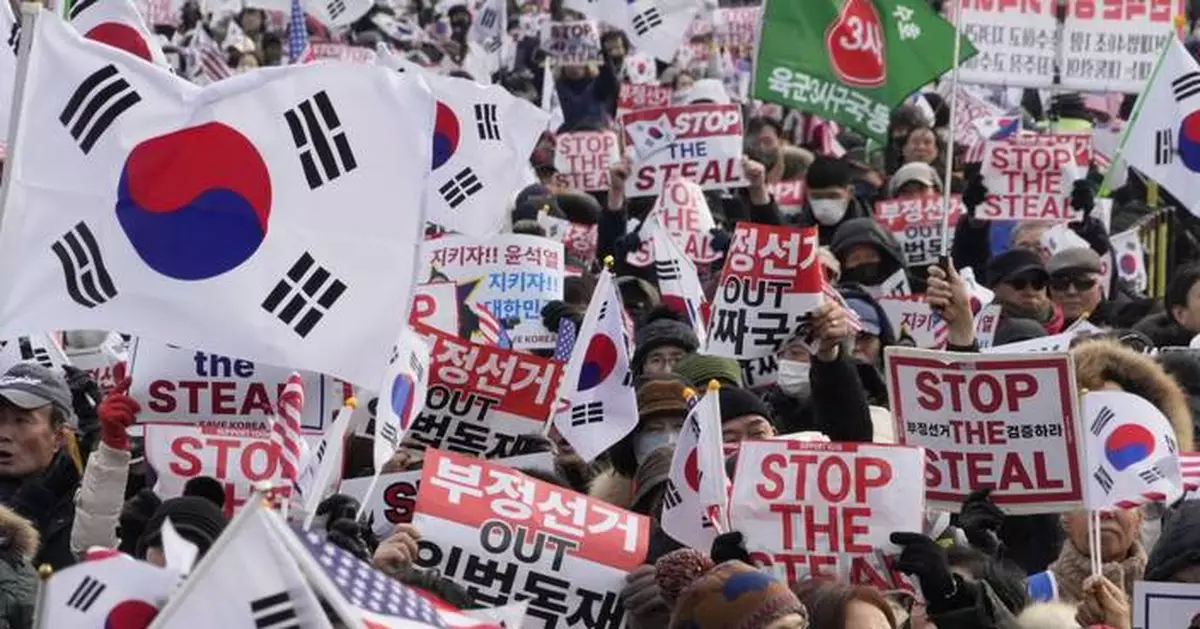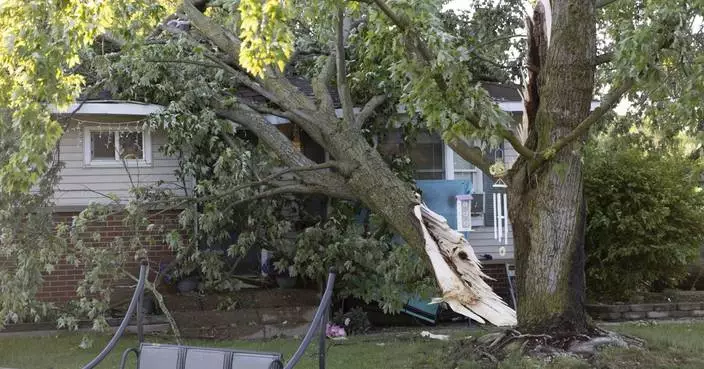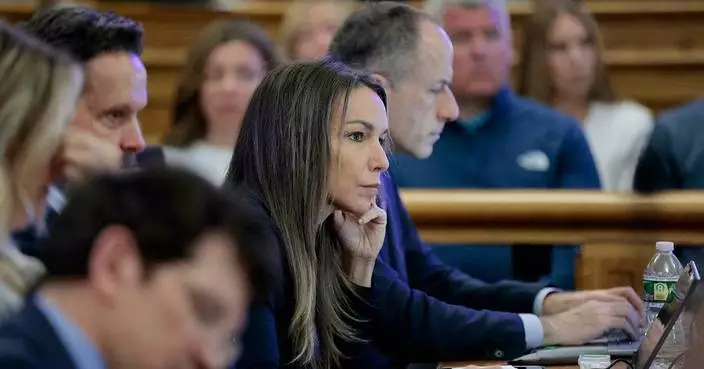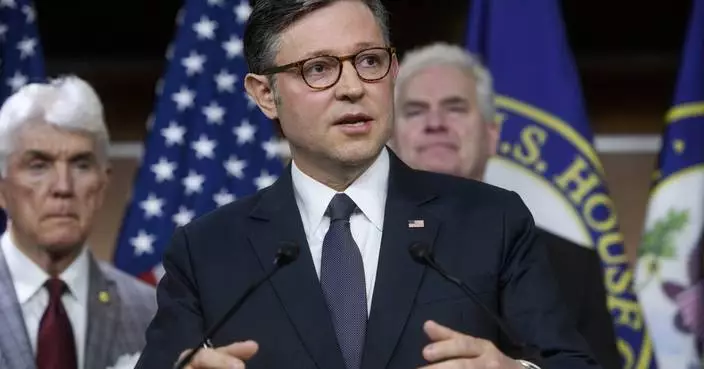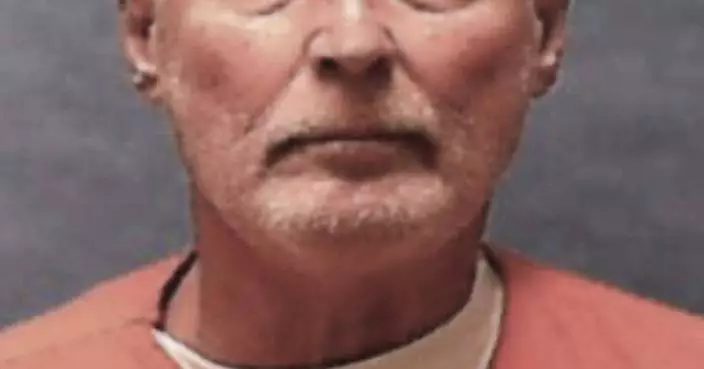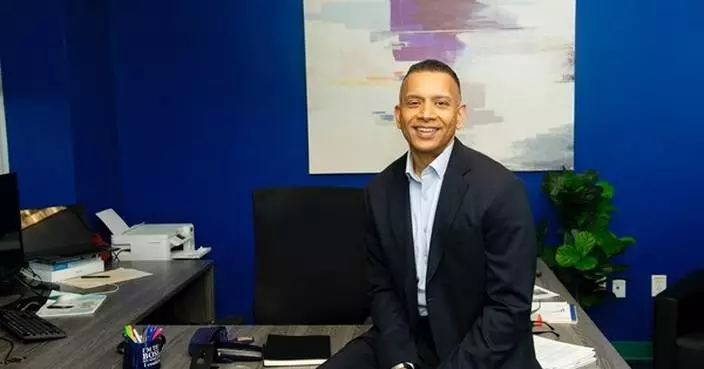SEOUL, South Korea (AP) — Lawyers for impeached South Korean President Yoon Suk Yeol denounced efforts to detain him over his short-lived imposition of martial law, while the country’s acting leader expressed concern Wednesday over a possible clash between law enforcement agents and presidential security personnel.
As anti-corruption officials and police prepared another attempt to detain Yoon following last week’s failed effort, the presidential security service fortified Yoon's compound with barbed wire and rows of tightly placed vehicles blocking the path to his residence.
Click to Gallery
Demonstrators supporting, left, and opposing impeached South Korean President Yoon Suk Yeol confront each other near the presidential residence in Seoul, South Korea, Wednesday, Jan. 8, 2025. The letters on right read "Arrest Yoon Suk Yeol." (AP Photo/Ahn Young-joon)
Protesters attend a rally demanding the arrest of impeached South Korean President Yoon Suk Yeol near the presidential residence in Seoul, South Korea, Wednesday, Jan. 8, 2025. The letters read "Arrest Yoon Suk Yeol." (AP Photo/Ahn Young-joon)
Protesters attend a rally demanding the arrest of impeached South Korean President Yoon Suk Yeol near the presidential residence in Seoul, South Korea, Wednesday, Jan. 8, 2025. The letters read, "Arrest Yoon Suk Yeol." (AP Photo/Ahn Young-joon)
Supporters of impeached South Korean President Yoon Suk Yeol attend a rally to oppose his impeachment near the presidential residence in Seoul, South Korea, Wednesday, Jan. 8, 2025. (AP Photo/Ahn Young-joon)
Impeached South Korean President Yoon Suk Yeol's residence is seen in Seoul, South Korea, Wednesday, Jan. 8, 2025. (AP Photo/Ahn Young-joon)
Security personnel walk on a road lined up with buses blocking the entrance gate of impeached South Korean president Yoon Suk Yeol's residence in Seoul, South Korea, Wednesday, Jan. 8, 2025. (AP Photo/Ahn Young-joon)
Supporters of impeached South Korean President Yoon Suk Yeol shout slogans during a rally to oppose his impeachment near the presidential residence in Seoul, South Korea, Wednesday, Jan. 8, 2025. (AP Photo/Ahn Young-joon)
Supporters of impeached South Korean President Yoon Suk Yeol attend a rally to oppose his impeachment near the presidential residence in Seoul, South Korea, Wednesday, Jan. 8, 2025. (AP Photo/Ahn Young-joon)
Supporters of impeached South Korean President Yoon Suk Yeol attend a rally to oppose his impeachment near the presidential residence in Seoul, South Korea, Wednesday, Jan. 8, 2025. (AP Photo/Ahn Young-joon)
The Corruption Investigation Office for High-Ranking Officials and police say they will make a more forceful effort to detain Yoon, warning that they could arrest members of the presidential security staff if they obstruct efforts to seize the embattled president.
The office, which is leading a joint investigation with police and military, has been seeking Yoon’s detention since he repeatedly ignored summons for questioning about whether his brief power grab on Dec. 3 constituted rebellion.
In a news conference, Yoon’s lawyers challenged the legitimacy of a new detention warrant issued Tuesday by the Seoul Western District Court, arguing that the anti-corruption agency lacks legal authority to investigate rebellion charges or order police to detain suspects.
Yoon Kap-keun, one of the lawyers, urged the anti-corruption agency to either indict the president or seek a formal arrest warrant — a process that would require a court hearing.
However, he said the president would only comply with an arrest warrant issued by the Seoul Central District Court, accusing the agency of deliberately choosing the Western District Court because of its allegedly favorable judge. He didn’t give a clear answer when asked whether the president would appear at the Central District Court for a hearing on an arrest warrant, saying security issues must be settled first.
“People are suffering in the severe cold and government officials must be experiencing significant internal conflict,” the lawyer said, referring to daily protests by both Yoon’s critics and supporters near his residence. “Please consider this as us taking a step back based on good will.”
The liberal opposition Democratic Party, which drove the legislative effort leading to the president's impeachment on Dec. 14, accused his lawyers of attempting to stall the process and urged the anti-corruption agency to swiftly execute the detainment warrant against him.
About 150 anti-corruption agency investigators and police officers attempted to detain Yoon at his residence on Friday but retreated after a tense standoff with the presidential security service that lasted more than five hours. The investigators have not yet made another attempt to detain him.
Police said they are considering “all available options” to bring Yoon into custody and haven’t publicly ruled out the possibility of deploying SWAT teams, although it’s unclear whether investigators would risk triggering a confrontation with presidential security forces, who are also armed.
In a government meeting on Wednesday, the country’s acting president, Deputy Prime Minister Choi Sang-mok, urged authorities to ensure “there are no injuries to citizens or physical clashes between government agencies” in any attempt to detain Yoon.
In a parliamentary hearing on Tuesday, Oh Dong-woon, the anti-corruption agency's chief prosecutor, criticized Choi for instructing police to follow the presidential security service’s request to beef up security at Yoon’s residence ahead of Friday’s detention attempt. The police did not carry out Choi’s instruction, and Oh said the agency was reviewing whether Choi’s actions constituted an obstruction of official duties.
Hours after Yoon declared martial law and dispatched troops to surround the National Assembly on Dec. 3, lawmakers who managed to get past the blockade voted to lift the measure. Yoon’s presidential powers were suspended after the opposition-dominated assembly voted to impeach him on Dec. 14, accusing him of rebellion. The Constitutional Court has started deliberations on whether to formally remove Yoon from office or reinstate him.
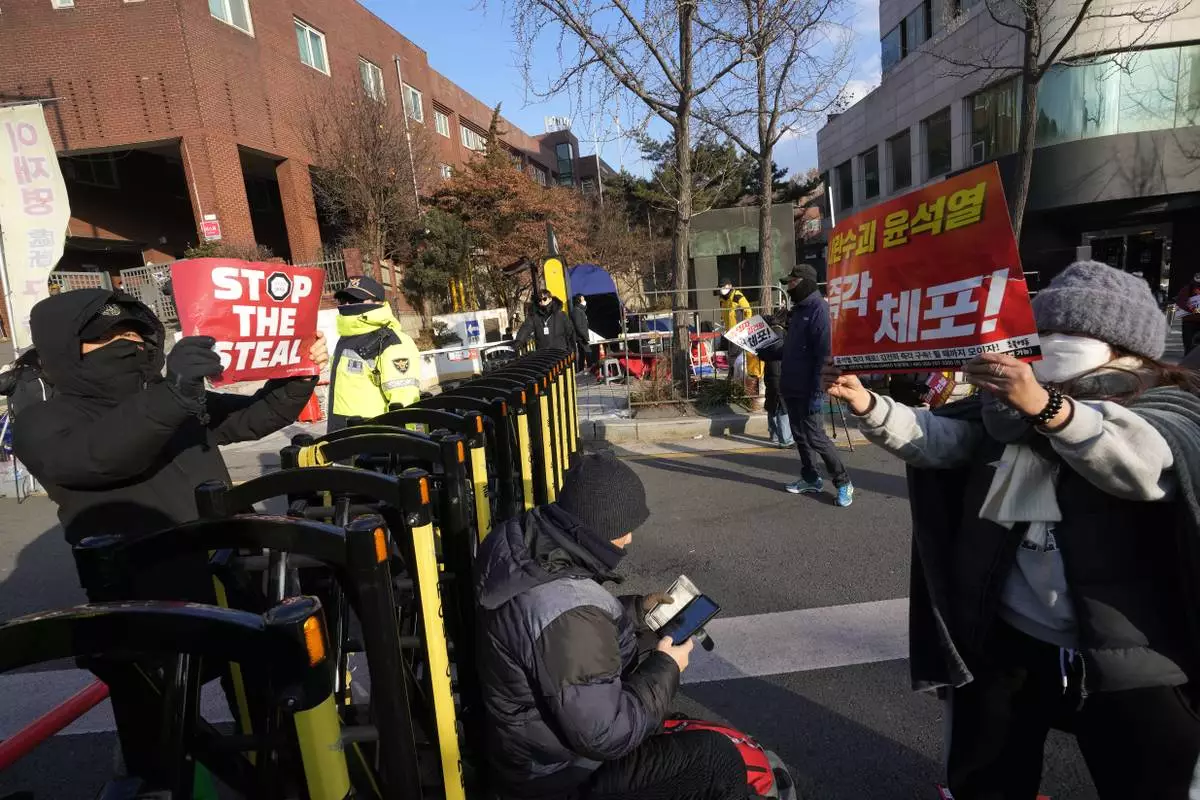
Demonstrators supporting, left, and opposing impeached South Korean President Yoon Suk Yeol confront each other near the presidential residence in Seoul, South Korea, Wednesday, Jan. 8, 2025. The letters on right read "Arrest Yoon Suk Yeol." (AP Photo/Ahn Young-joon)
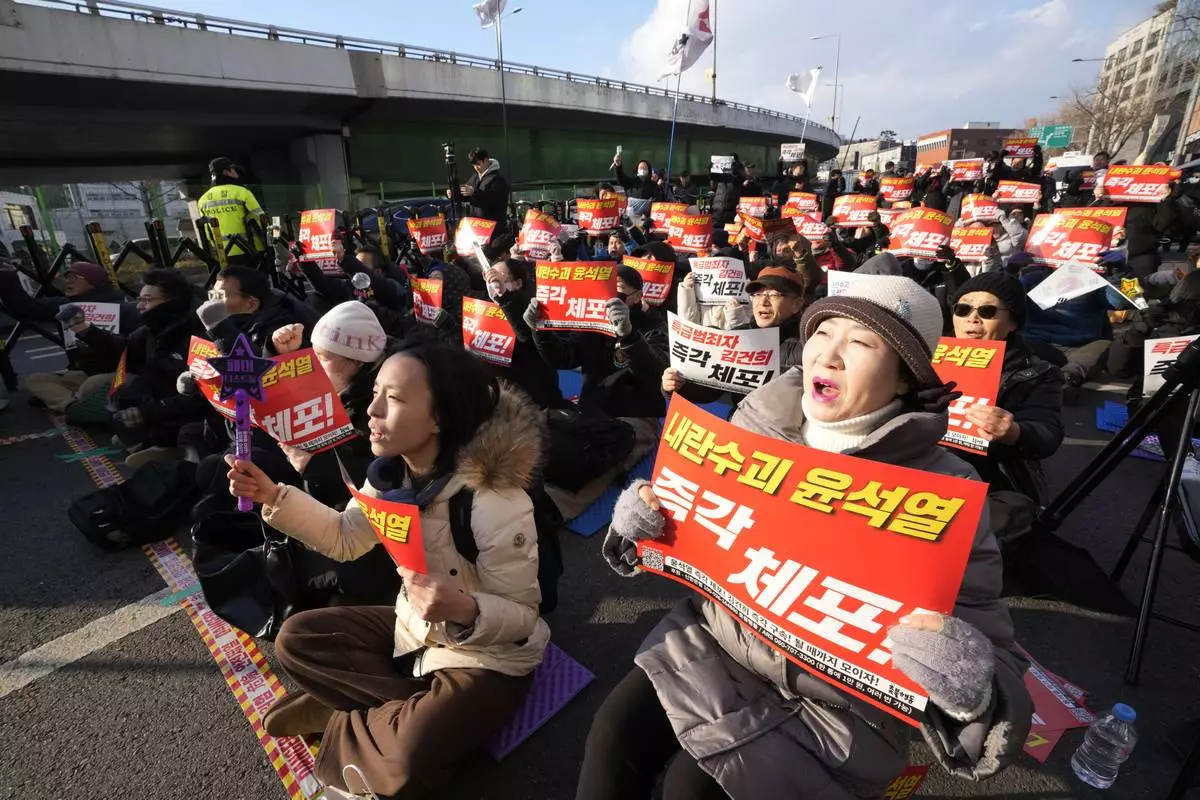
Protesters attend a rally demanding the arrest of impeached South Korean President Yoon Suk Yeol near the presidential residence in Seoul, South Korea, Wednesday, Jan. 8, 2025. The letters read "Arrest Yoon Suk Yeol." (AP Photo/Ahn Young-joon)
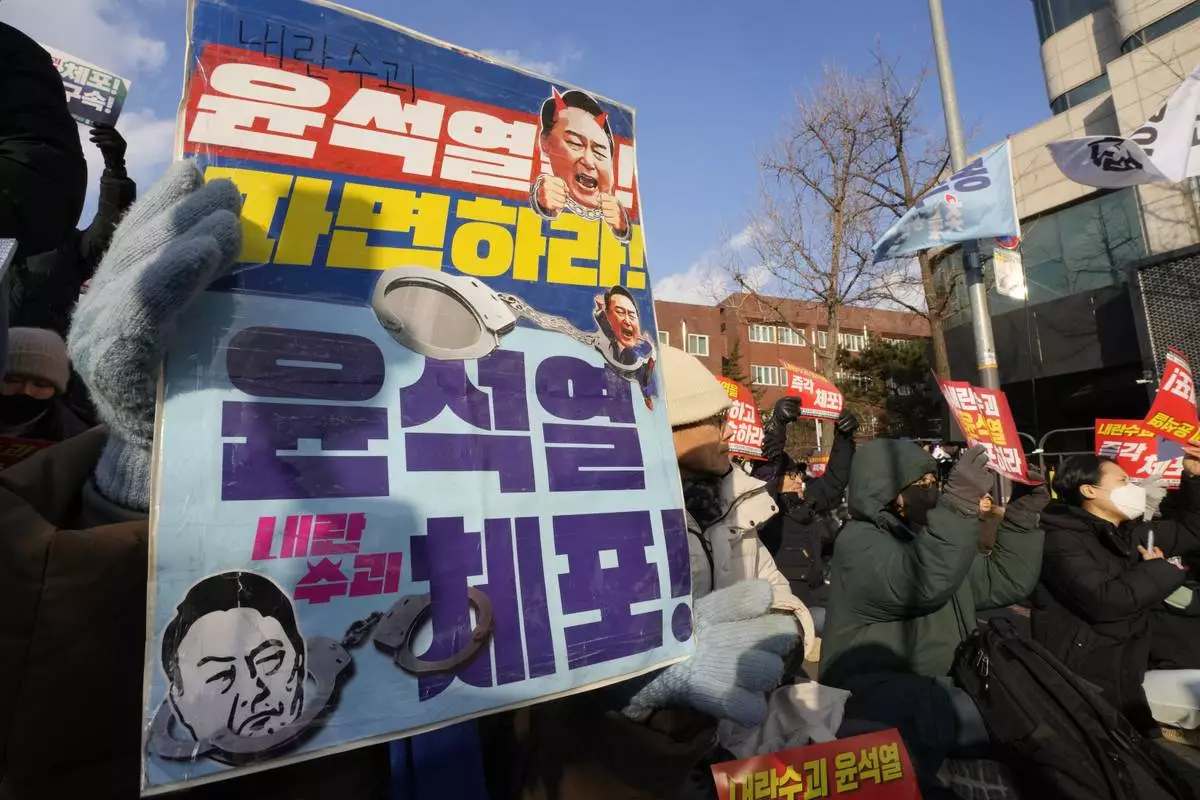
Protesters attend a rally demanding the arrest of impeached South Korean President Yoon Suk Yeol near the presidential residence in Seoul, South Korea, Wednesday, Jan. 8, 2025. The letters read, "Arrest Yoon Suk Yeol." (AP Photo/Ahn Young-joon)
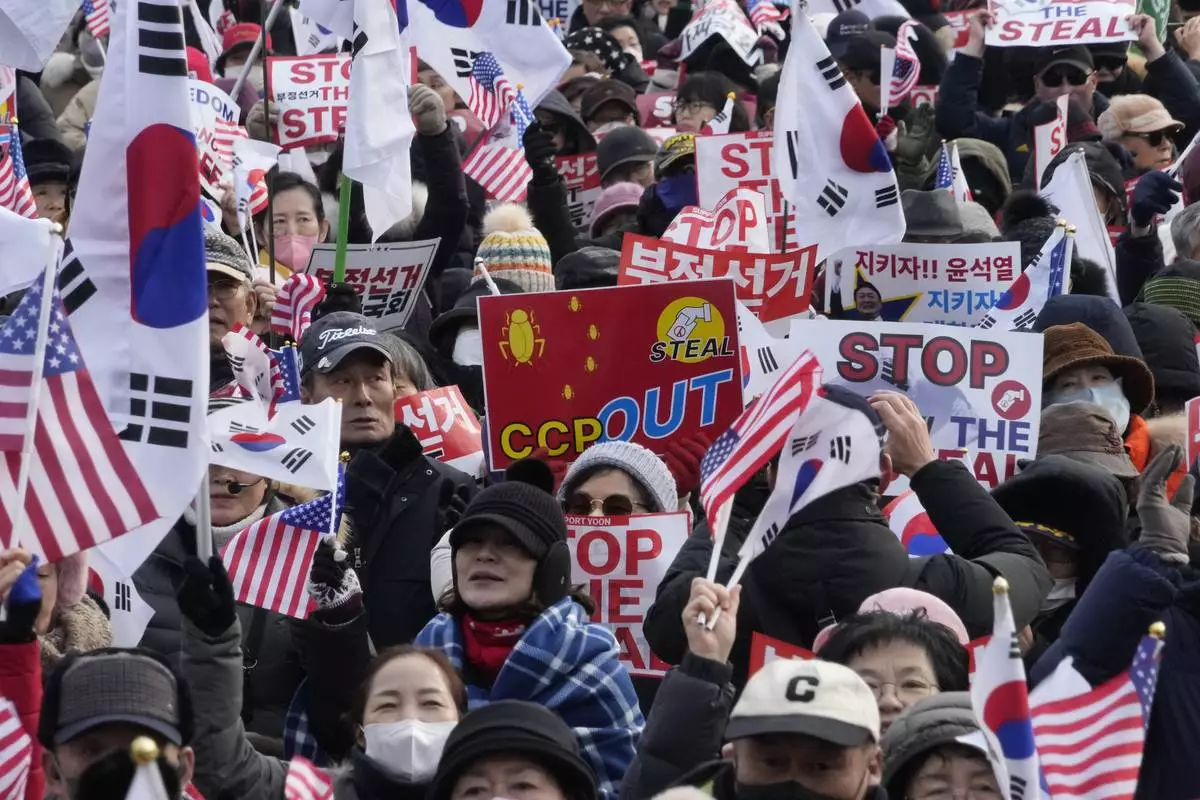
Supporters of impeached South Korean President Yoon Suk Yeol attend a rally to oppose his impeachment near the presidential residence in Seoul, South Korea, Wednesday, Jan. 8, 2025. (AP Photo/Ahn Young-joon)
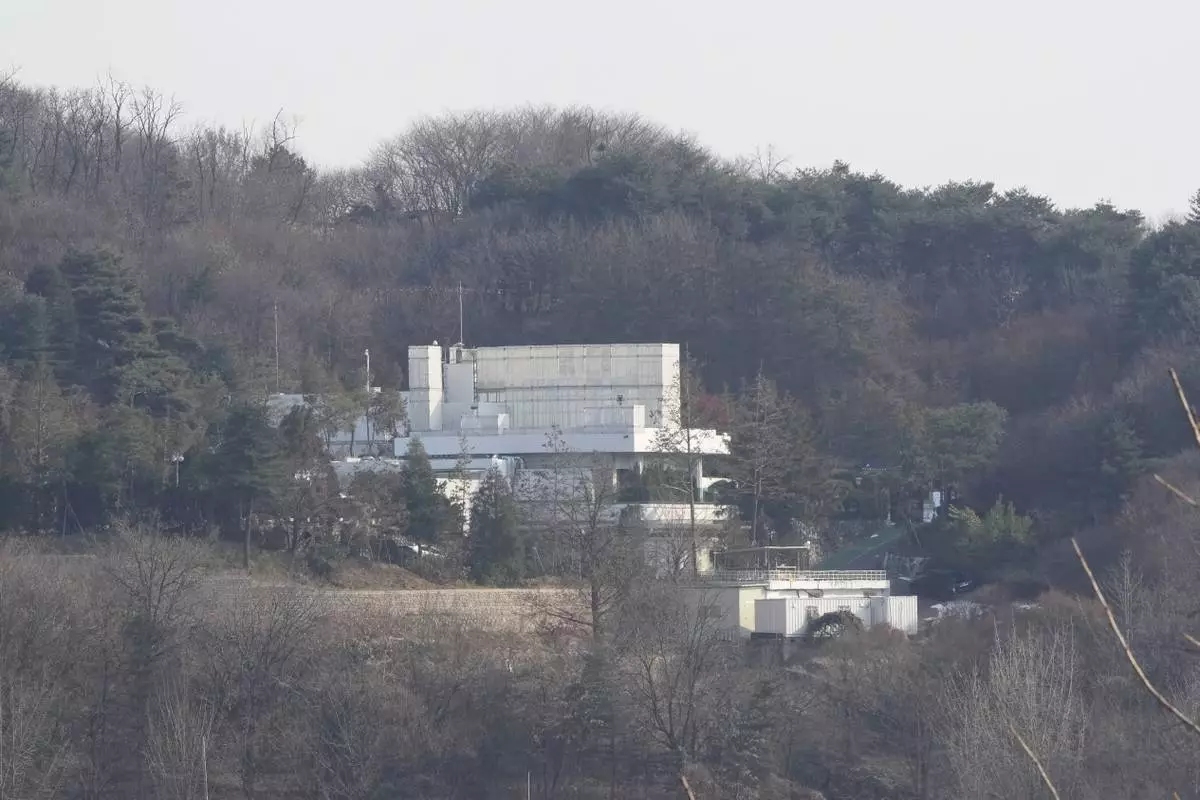
Impeached South Korean President Yoon Suk Yeol's residence is seen in Seoul, South Korea, Wednesday, Jan. 8, 2025. (AP Photo/Ahn Young-joon)
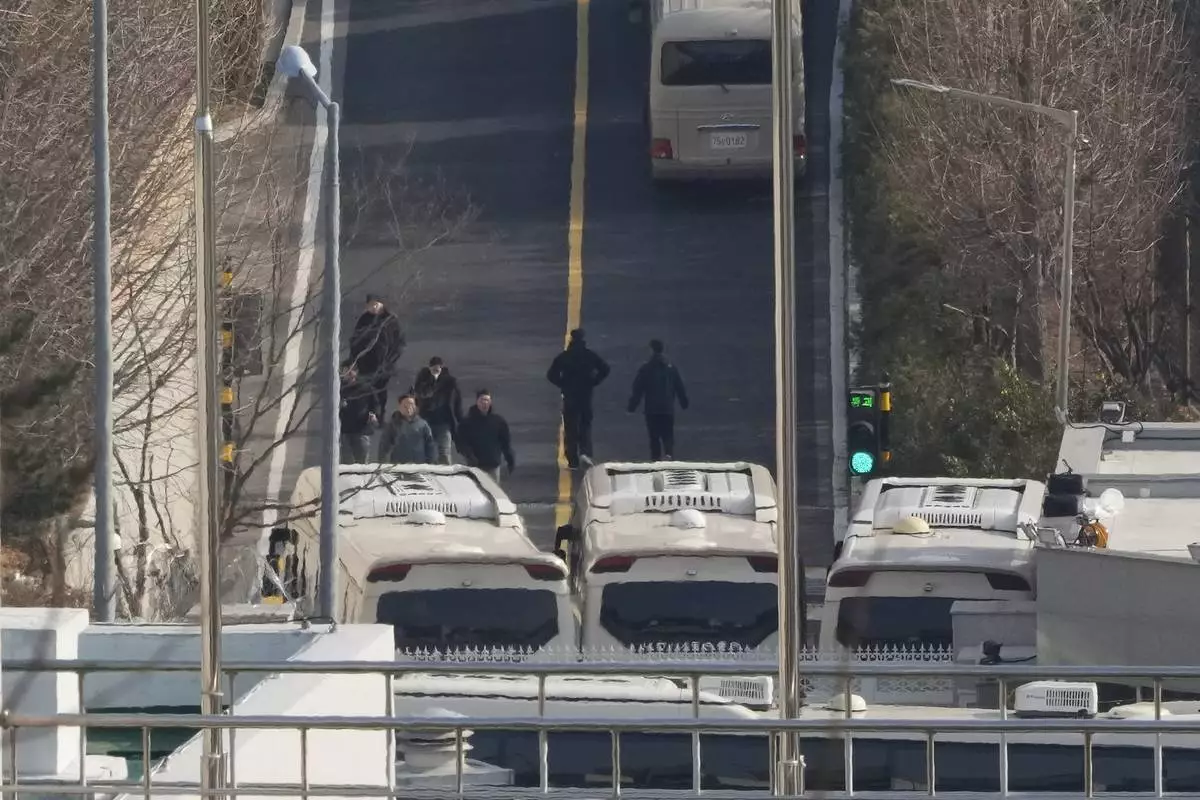
Security personnel walk on a road lined up with buses blocking the entrance gate of impeached South Korean president Yoon Suk Yeol's residence in Seoul, South Korea, Wednesday, Jan. 8, 2025. (AP Photo/Ahn Young-joon)

Supporters of impeached South Korean President Yoon Suk Yeol shout slogans during a rally to oppose his impeachment near the presidential residence in Seoul, South Korea, Wednesday, Jan. 8, 2025. (AP Photo/Ahn Young-joon)
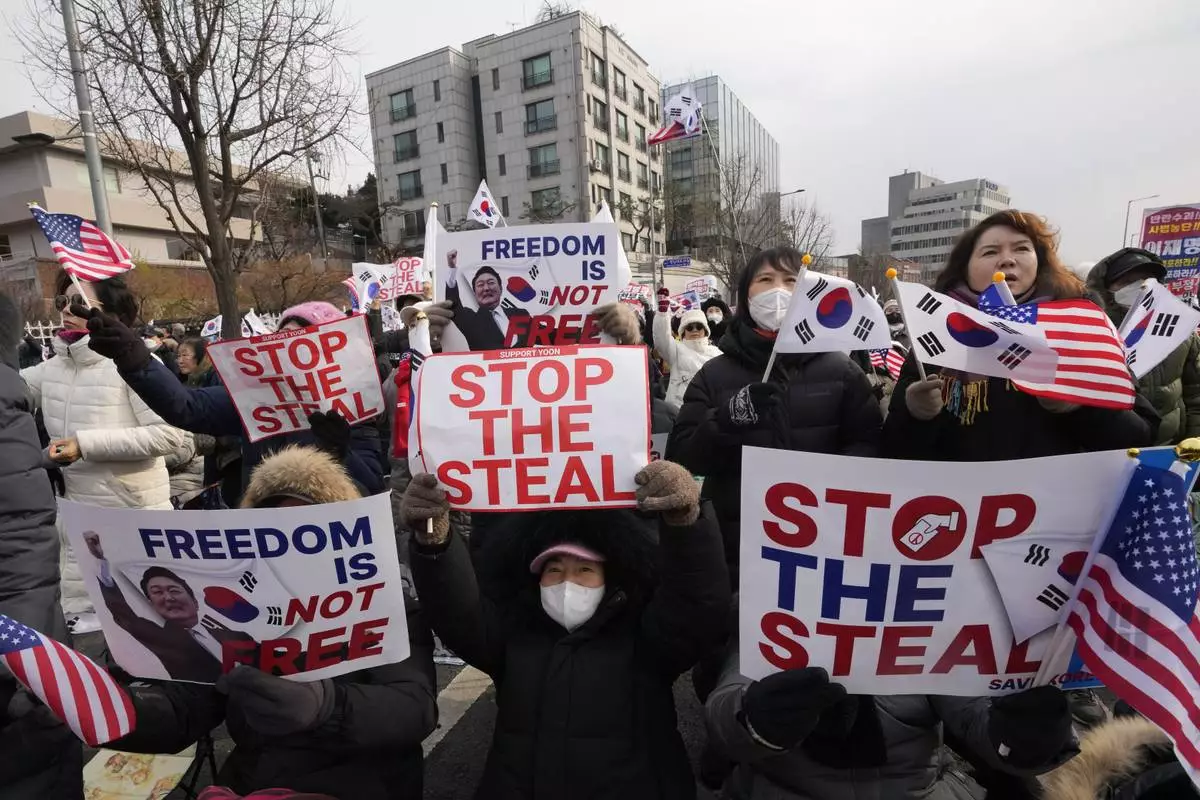
Supporters of impeached South Korean President Yoon Suk Yeol attend a rally to oppose his impeachment near the presidential residence in Seoul, South Korea, Wednesday, Jan. 8, 2025. (AP Photo/Ahn Young-joon)
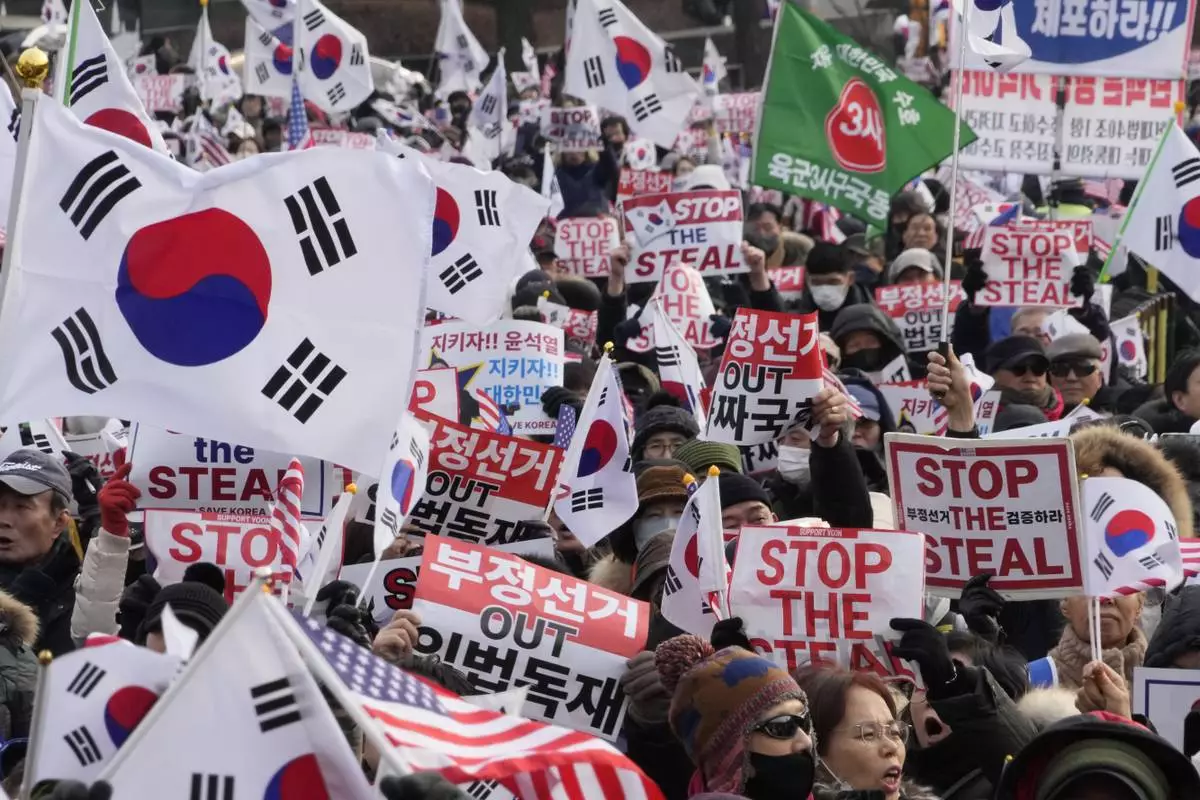
Supporters of impeached South Korean President Yoon Suk Yeol attend a rally to oppose his impeachment near the presidential residence in Seoul, South Korea, Wednesday, Jan. 8, 2025. (AP Photo/Ahn Young-joon)
NEW YORK (AP) — The R&B singer Cassie is back for more cross-examination Friday by the defense team for ex-boyfriend, Sean “Diddy” Combs.
Prosecutors allege that the hip hop mogul used his fame and fortune to orchestrate an empire of exploitation, coercing women into abusive sex parties. His lawyers argue that all the sexual acts were consensual, and although he could be violent, he never veered into sex trafficking and racketeering. Combs has pleaded not guilty to racketeering conspiracy; sex trafficking by force, fraud or coercion; and transportation to engage in prostitution.
Defense attorney Anna Estevao has made Cassie read out loud from messages expressing desire for the drug-fueled group sex she previously testified left her traumatized. Estevao also suggested that by exposing Combs' sexual behavior in a lawsuit, it was Cassie who ended Combs' career, not the other way around.
Prosecutors implored the judge overnight to make the defense wrap up its questioning in time to allow for prosecution follow-ups on Friday, citing concern for Cassie’s “health and safety” and the potential for a mistrial if she goes into labor with her third child.
The Latest:
After fears that Cassie’s testimony could spill over to next week, Estevao says she’ll finish questioning Cassie “much sooner” than expected this afternoon, even before the next break.
The defense questioning may have been speeded because Cassie has been a cooperative witness throughout her four days on the witness stand. She hasn’t challenged Combs’ lawyer or claimed often that she can’t remember what happened during a period of her life when she concedes she was addicted to drugs.
Much of the key testimony before lunch traced the end of their relationship and the role jealousy played in it. The final straw, as Cassie acknowledged, came in November 2018 when she learned that Combs considered a woman he had dated for several years during his time with Cassie to be his “soulmate.”
“I didn’t see him again after that,” she testified.
She noted that Cassie’s trial testimony differs in some ways from what she told investigators in 2023. Cassie contends Combs raped her in her Los Angeles home after they had dinner in Malibu to discuss the end of their decade-long relationship, either in August or September 2018.
— Her testimony: Combs “was just being really nice” at the dinner — playful, laughing and giving off “kind of romantic vibes.”
— To investigators: Combs had been “acting very strangely” that night — he was anxious, not “in his right mind,” and possibly experiencing signs of bipolar disorder.
— On cross-examination: “Nice but strangely, yea,” Cassie clarified.
— Her testimony: At the dinner, Combs was trying to get her to go to the Burning Man festival in Nevada.
— To investigators: The dinner and rape happened after Combs got back from that year’s festival.
— On cross-examination: Cassie reaffirms that Combs was trying to get her to go to Burning Man, while acknowledging that she told investigators he raped her after the festival.
Cassie acknowledged their consensual sex as Estevao had her read the texts they exchanged in the aftermath of their breakup.
Cassie told Combs: “I do love you. I would just prefer not being one of your girlfriends anymore.”
Then, a few weeks after the alleged rape, Cassie said she was moving on to respect her own sanity. Combs replied: “I respect your sanity. It’s best we keep it moving. I’m not a stalker.”
Cassie also acknowledged that these messages made no mention of the alleged rape.
Estevao asked Cassie if she still had feelings for Combs after he allegedly raped her in August 2018.
“You didn’t hate him then. And you don’t still hate him now,” Estevao said.
“I don’t hate him,” Cassie responded.
“You still have love for him?”
“I have love for the past, what it was.”
Cassie testified that she broke up with Combs for good in August 2018 after she saw a photo of him with another woman he’d been dating for the last few years of their decade-long relationship.
“I just don’t trust anymore. That last shot put the nail in the coffin,” Casse texted Combs, referring to the photo of Combs with a woman identified in court as Gina.
“I promised myself I wouldn’t be with you anymore if you did that to me again,” Cassie wrote, telling Combs “you lied to me” and “she never went away.”
Soon after, Cassie said, she started dating her now husband, Alex Fine.
Estevao noted that the women’s center offered treatment for sex addiction, sexual compulsion and love addiction — and she asked Cassie if she was treated for any of these things during her weeks-long stay.
Cassie said she was not — but that she did undergo neurofeedback therapy: “They hook your brain up to a machine and you watch something and it regulates your brain waves.”
She said she underwent it five or six times, or about once a week during her stay, and that she believed it was to help her process trauma.
Cassie said she also underwent “EMDR” therapy to process trauma — and gave an example of recalling a traumatic moment when you couldn’t escape a room, but through therapy are able to experience what it’s like to escape the room.
Jurors heard a recording of a distressed Cassie screaming at a friend who said he had seen a video of performing sex acts.
In the recording, made by Cassie in 2013, the man claimed to have the video on his phone. Cassie is heard pleading to see the video and then threatening to kill him if it became public.
“I’ve never killed anyone in my life, but I will kill you,” Cassie told the man, punctuating her threats with profanity.
Cassie acknowledged in her testimony that Combs subsequently made efforts to keep the video private.
Defense attorney Anna Estevao resumed her cross examination Friday with questions related to the March 2016 recording of Combs attacking Cassie at the elevator bank of a Los Angeles hotel. In it, Combs can be seen slinging Cassie to the floor, kicking her and dragging her into a hotel hallway.
Estevao had Cassie read aloud a text message in which she complained that Combs was out of control from drugs and alcohol that day. In the message, Cassie told Combs: “I’m not a rag doll. I’m somebody’s child.”
Through text messages read aloud to the jury, Estevao then showed that Combs and Cassie were expressing love to one another again just days later as they tried to recover from the hotel attack. Cassie told Combs in one text: “We need a different vibe from Friday.”
Cassie said Combs was wary of her dating or giving attention to other men, even during breaks in their decade-long relationship. The hip-hop star took her phone from her on numerous occasions, including when he found out she was dating a football player and when she suspected her of dancing with the singer Chris Brown. Cassie didn’t name the player and denied dancing with Brown.
The judge has tried to clear the way for jurors to be brought in on time for what was hoped to be Cassie’s last day on the witness stand.
One item in dispute: A recording Combs made when he went to rehabilitation after a March 2016 attack on Cassie at the elevator bank of a Los Angeles hotel.
Prosecutor Emily Johnson said the video showed Combs “wandering through nature” as he spoke of “religion and God.” She described it as an effort by Combs’ lawyers to seek sympathy from the jury.
On the video, Combs says he has “God in my heart.” The judge watched it and then decided the argument was moot because the defense agreed not to show the video to the jury.
Their complaints include:
A day after an attorney for Combs claimed that prosecutors purposely delayed calling Cassie to testify so that the defense would have less time to cross examine her, prosecutors shot back in a letter to the judge overnight.
Prosecutors said it seemed defense lawyers were intent on forcing Cassie to return to the witness stand on Monday so that Combs could review transcripts over the weekend and help them prepare additional questions for her.
They also raised the risk of a mistrial if Cassie is required to return Monday but instead goes into labor with her third child over the weekend.
Messages between Combs and Cassie — both romantic and lurid — were the focus of the fourth day of testimony in a Manhattan courtroom. Defense attorney Anna Estevao read what Combs wrote, while Cassie recited her own messages about her participation in marathon encounters with sex workers, called “freak-offs.”
▶ Read more about Cassie’s testimony Thursday
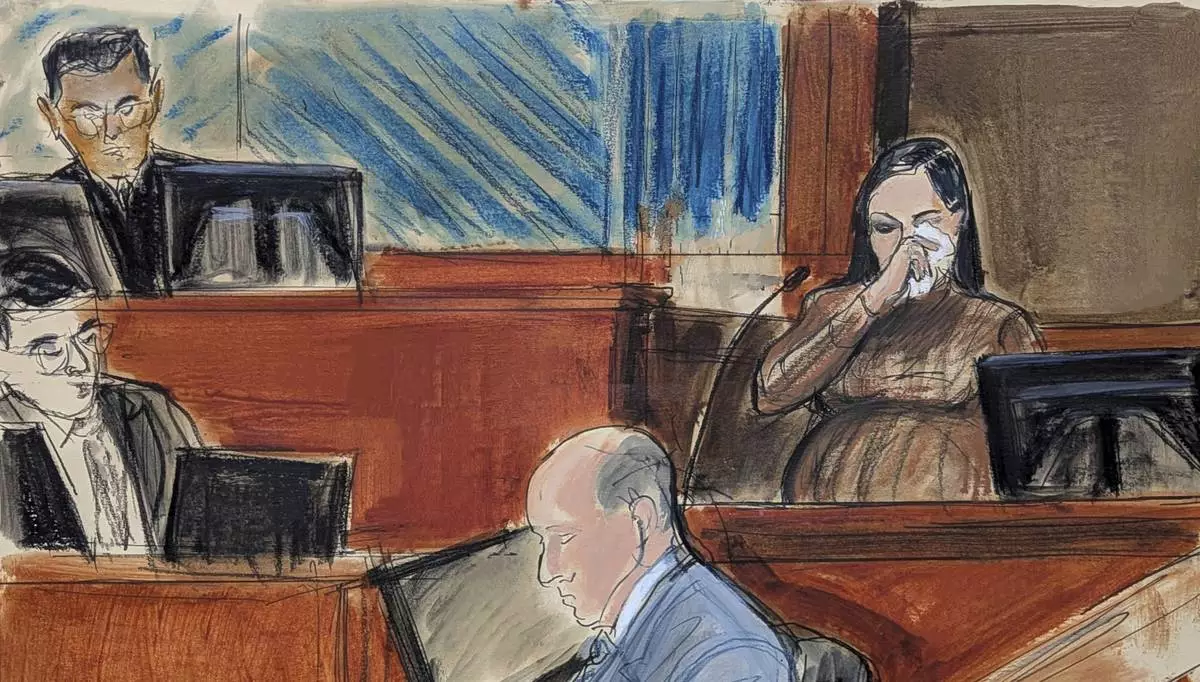
Cassie Ventura wipes tears from her eye while testifying in Manhattan federal court, Tuesday, May 13, 2025, in New York. (Elizabeth Williams via AP)
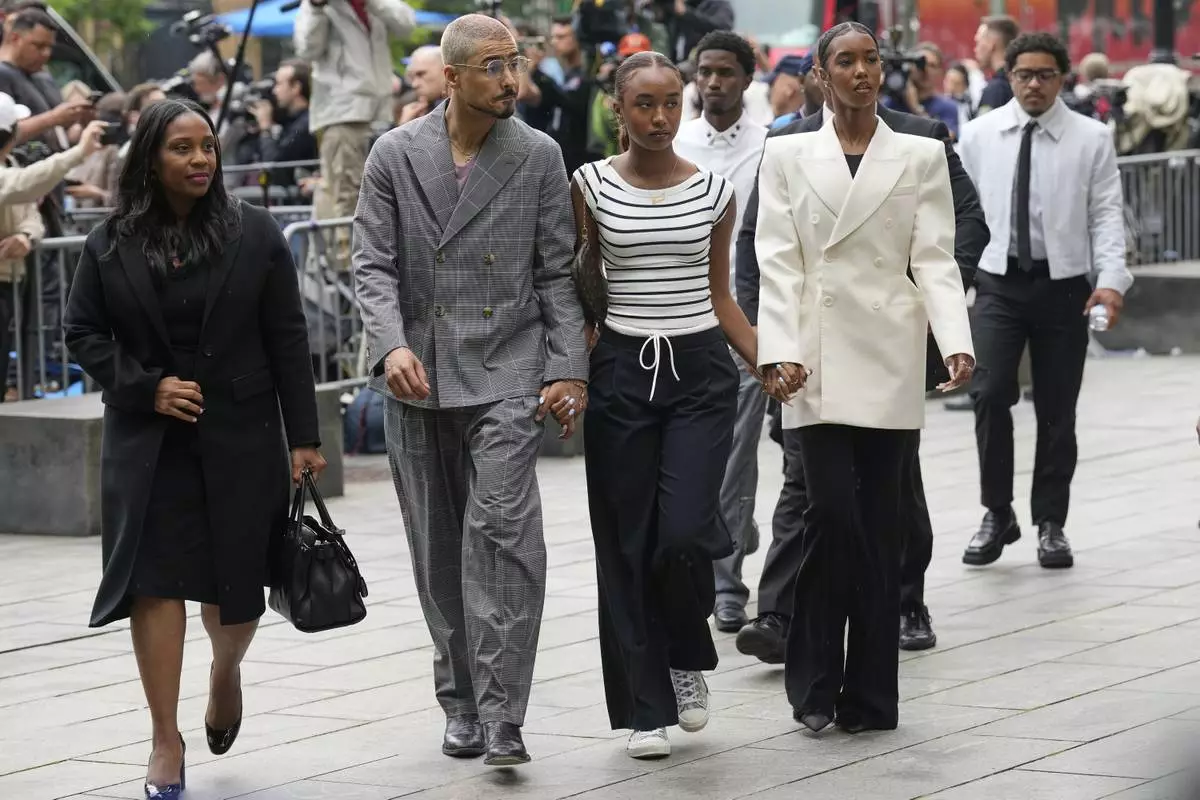
Quincy Combs, second from left, and Chance Combs center, arrive at Manhattan federal court, Tuesday, May 13, 2025, in New York. (AP Photo/Seth Wenig)

Janice Combs arrives at Federal Court after the lunch break in the Sean "Diddy" Combs trial, in New York, Tuesday, May 13, 2025. (AP Photo/Richard Drew)
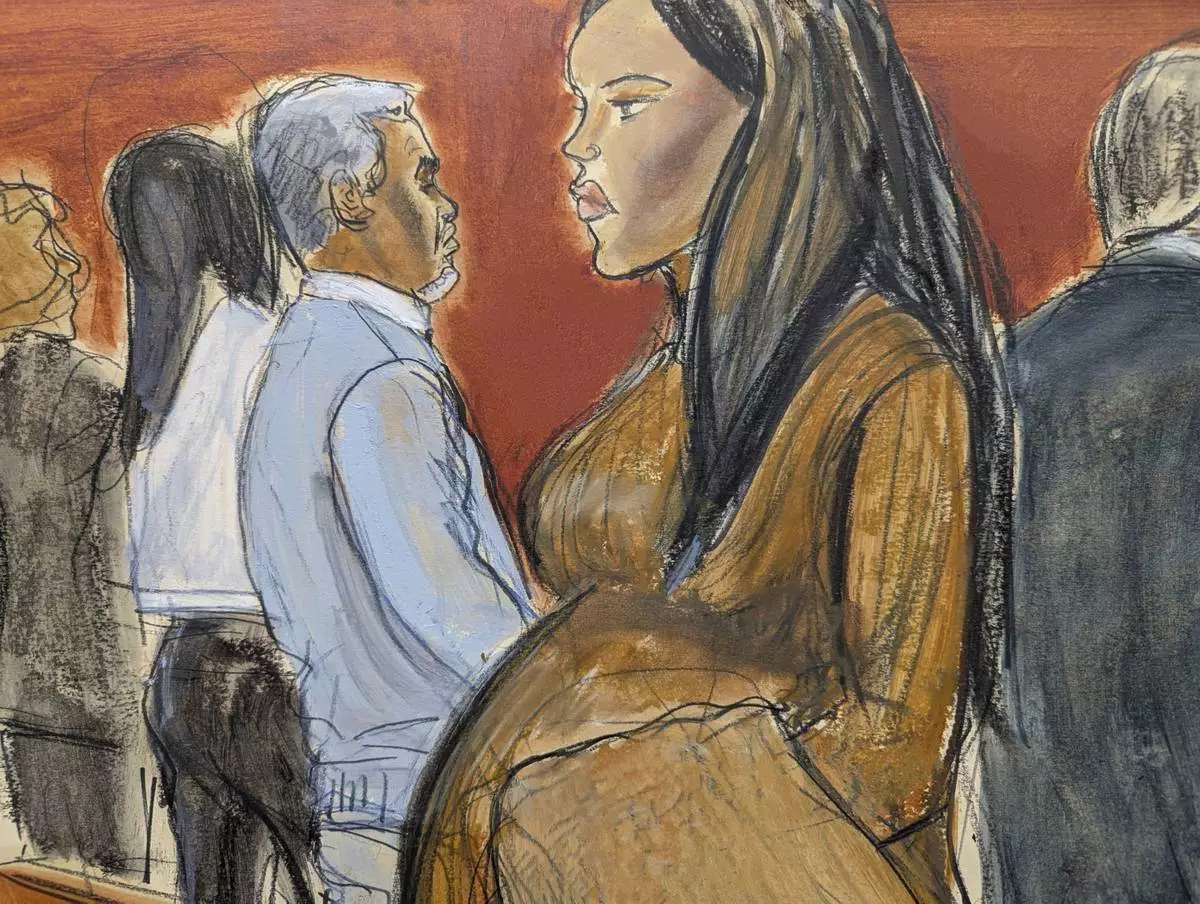
Cassie Ventura, right, walks out of the courtroom past Sean Diddy Combs after testifying in Manhattan federal court, Tuesday, May 13, 2025, in New York. (Elizabeth Williams via AP)
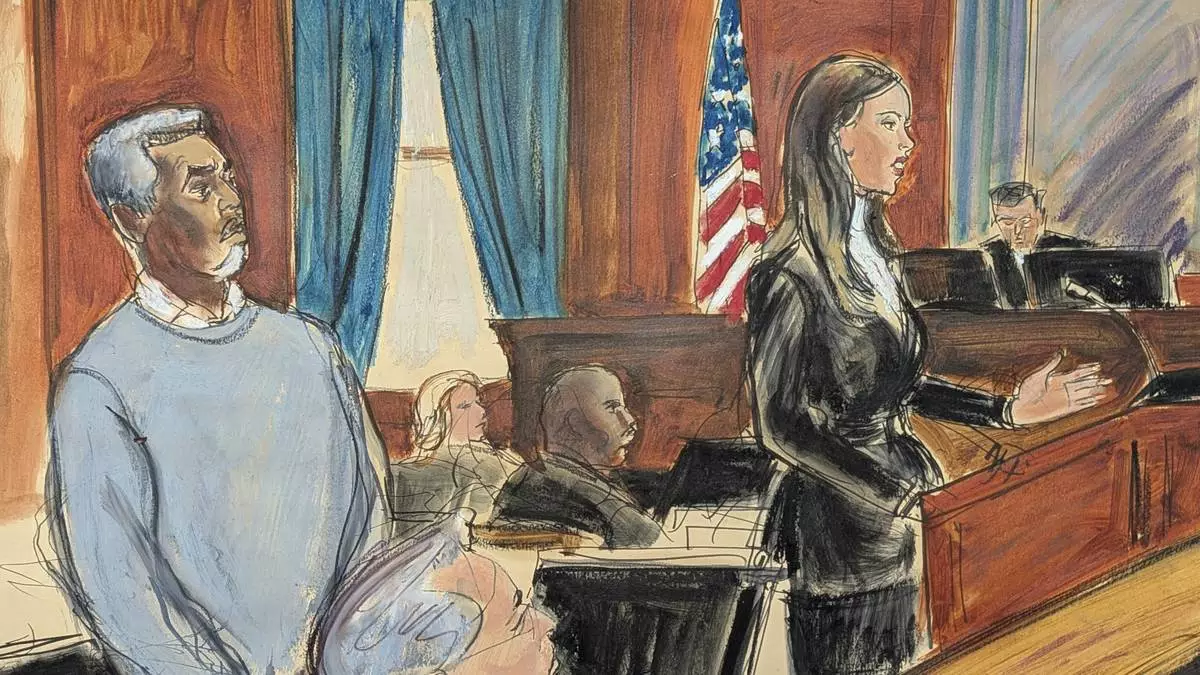
Sean Diddy Combs, left, stands as his defense attorney, Teny Geragos, gives her opening statement to the jury on the first day of trial in Manhattan federal court, Monday, May 12, 2025, in New York. (Elizabeth Williams via AP)











